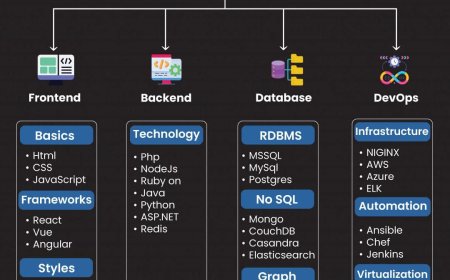Outsourced Bookkeeping Offers Financial and Operational Flexibility

Most businesses rely on precise financial management as a fundamental element for achieving enduring success. The approach taken for bookkeeping during periods of business growth or change plays a critical role in maintaining operational efficiency and financial stability. Businesses are finding that outsourcing bookkeeping provides scalable flexibility that extends beyond mere financial savings compared to keeping an internal team.
The true cost of in-house bookkeeping
Businesses seeking to maintain tight control over financial processes might initially find hiring internal bookkeeping staff to be a logical choice. The complete expenses associated with in-house bookkeeping become substantial when all factors besides salaries are taken into account.
A full-time bookkeeper position in Australia generally offers base salaries between $65,000 and $95,000, depending on the candidate's experience level and geographic location. But thats just the beginning. The actual total expense escalates rapidly when you consider superannuation fees and payroll taxes, alongside annual leave and sick leave benefits, and other employee entitlements.
In addition to employee salaries, there are expenses for accounting software licenses as well as data security systems and IT support, together with office infrastructure. Bookkeepers require continuous professional development to keep abreast of legislative tax changes and payroll system updates and to meet compliance requirements. Conducting in-house training requires a significant time investment while simultaneously generating high expenses.
The combination of fixed and variable costs creates a significant long-term financial burden, making in-house bookkeeping difficult to rationalise for small and mid-sized companies. In contrast, some companies are employing an offshore accountant to streamline back-office financial work, particularly where cost containment is a priority.
Predictable, scalable outsourcing costs
Outsourced bookkeeping delivers a dependable pricing model that is often more cost-effective than other options. Businesses can plan their expenses with greater precision because most service providers deliver fixed monthly packages along with pay-as-you-go pricing structures. This level of financial transparency proves essential to businesses that face seasonal shifts or irregular cash flow patterns.
Businesses only pay for the level of service they need because they do not cover salaries and employment expenses. Outsourced providers usually offer tiered packages that match different business requirements and financial limits, whether the service is simple data entry and reconciliation or advanced support such as Business Activity Statements (BAS) preparation and payroll processing. This includes providers who specialise in payroll outsourcing in Australia, offering businesses added support for managing employee entitlements and Australian Tax Office (ATO) compliance.
Access to professional-grade software platforms such as Xero, MYOB, or QuickBooks becomes available without direct license purchase or management responsibilities. Outsourcing arrangements frequently include these platforms to provide additional cost savings and automate systems.
Flexibility to growor scale back
Business growth is rarely linear. A single quarter could require extra support because of business expansion activities or added workload from new contracts and increased transactions. The upcoming period may force companies to implement cost-cutting strategies because of changing market dynamics or financial strain. Outsourced bookkeeping services adjust to business ups and downs with greater ease than permanent staffing options.
Need to scale up? External providers enable rapid resource allocation to your account while avoiding the time-consuming processes of hiring and training new staff. Need to scale back? Your service level can be modified without initiating redundancies or managing difficult HR procedures.
Start-ups and fast-growing businesses benefit from this agility because they lack the infrastructure for a complete finance team, yet require professional financial management to ensure compliance and support decision-making.
Focus on core operations
Outsourcing provides business owners and their teams with the opportunity to concentrate on their core competencies. Running an internal bookkeeping team demands oversight and performance management while taking time away from troubleshooting financial systems.
Businesses can focus on strategic goals and client service when they outsource these functions, instead of managing them internally. Outsourced bookkeeping services deliver dependable transaction recording and complete reconciliations while meeting compliance deadlines, so internal staff monitoring becomes unnecessary.
Reduced risk, improved continuity
Businesses benefit from outsourced services because they come with embedded redundancy and continuity planning. Unlike one in-house bookkeeper who can be unavailable due to leave, illness, or resignation, outsourced providers maintain teams to ensure their services are always operational. These services help minimise risk while ensuring essential deadlines such as BAS submissions and payroll runs are never missed.
These professionals possess extensive industry knowledge gained through their work with multiple business sectors. Broad experience from outsourced bookkeepers produces enhanced business processes and enables early anomaly detection while providing actionable insights that improve business performance.
A smarter way to manage your finances
Outsourced bookkeeping has become a strategic choice for businesses that want financial flexibility, together with operational efficiency and peace of mind, rather than just serving as a temporary solution for small enterprises. Businesses can maintain market agility and strengthen their financial core by adopting scalable expert solutions instead of fixed in-house staff costs and obligations. Outsourcing provides businesses with timely support for both rapid growth and cautious advancement without binding long-term commitments.




















